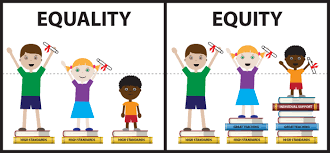Firstly, don’t panic. As parents we sometimes spend time imagining how our children will grow and develop, and there are times when the unexpected happens or things don’t turn out the way that we had imagined. All children are unique and bring different abilities and strengths with them when they start pre-school. Children develop and reach milestones at a rate which is individual to them. In the same way that every child has his or own strengths, they may also have areas where they need help or support.
Pre-schools are different environments to the homes that our children grow up in. There are different routines and expectations for children than there are at home. We are all individuals and have different families, cultures, values, abilities strengths and areas of need, and as parents we often adapt our homes and routines and the way we communicate to meet the needs of those around us, particularly our children. Any child may go through difficulties dealing with these changes as they transition from their home to pre-school.
When children start pre-school, for some family’s children’s areas of need become visible, and your child’s pre-school teacher may recommend that your child needs some extra support to join in and participate fully in the pre-school day. Your child for example could have difficulties with communicating their needs or coping with the different routines, sounds and smells. These are things that may not have been apparent or obvious at home, so for some parents it could be the first time you are hearing about any challenges or areas of support that your child might need.
If you or your child’s pre-school think that your child may need extra support, there are many ways that pre-schools can support you and your child.
If your child has needs that have been identified by you or your child’s pre-school teacher, it’s important to have a conversation about how you can both support your child so that they can reach their full potential in all areas of their development. Your pre-school teacher or Manager may suggest engaging with the Access and Inclusion Model (AIM).
The Access and Inclusion Model (AIM) has been developed for Early Childhood Care and Education services to support all children and all families to enjoy the benefits of the Early Childhood Care and Education Scheme (ECCE). “Its goal is to empower pre-school providers to deliver an inclusive pre-school experience, ensuring that every eligible child can meaningfully participate in the ECCE Programme and reap the benefits of quality early years care and education” (AIM 2016)
There are many things within the pre-school day that pre-schools can do to support children who have unique and individual needs. However, by engaging with AIM the pre-school can make contact with an AIM Early Years Specialists who can “support pre-school settings and the Parent/Guardian/Carer in having timely access to advice and supports” (AIM).
The process starts with an online application that you will carry out in partnership with the pre-school It’s important to note that the application process is always a joint action between the pre-school and the parents, and the pre-school will request your consent to make an application.
AIM offers support to pre-school teachers, so they can support children and families while they are enrolled on the Early Childhood Care and Education Scheme (ECCE). It does this in many ways which include general and more individual or targeted supports below is a sample of how AIM can support children and practitioners.
- Specialised training for pre-school teachers so they can support and meet children’s needs
- Offering support to services to create a more inclusive communication environment – e.g. using visuals, signage, images and promote partnership with parents,
- Specialised equipment, appliances and grants towards minor building alterations which are necessary to support a child’s participation in the ECCE Programme.
- The lowering of the child to staff ratio in the room so that all children receive the attention they need (This is a targeted support)
- Providing Practitioner support to develop Individual Access & Inclusion Plans for children- the aim of these are to support children to reach small achievable goals.
If your child needs support in pre-school it does not necessarily mean that they will always need support in their education. Evidence suggests that our brains go through the biggest growth period between the ages of birth to six years, than at any other time in our lives. This means that there is so much you can do as parents to influence how your child grows, learns and develops.
For more information on AIM follow the link here: http://aim.gov.ie/ or contact the NPC Helpline Tel: 01 887 4477 or email: helpline@npc.ie






